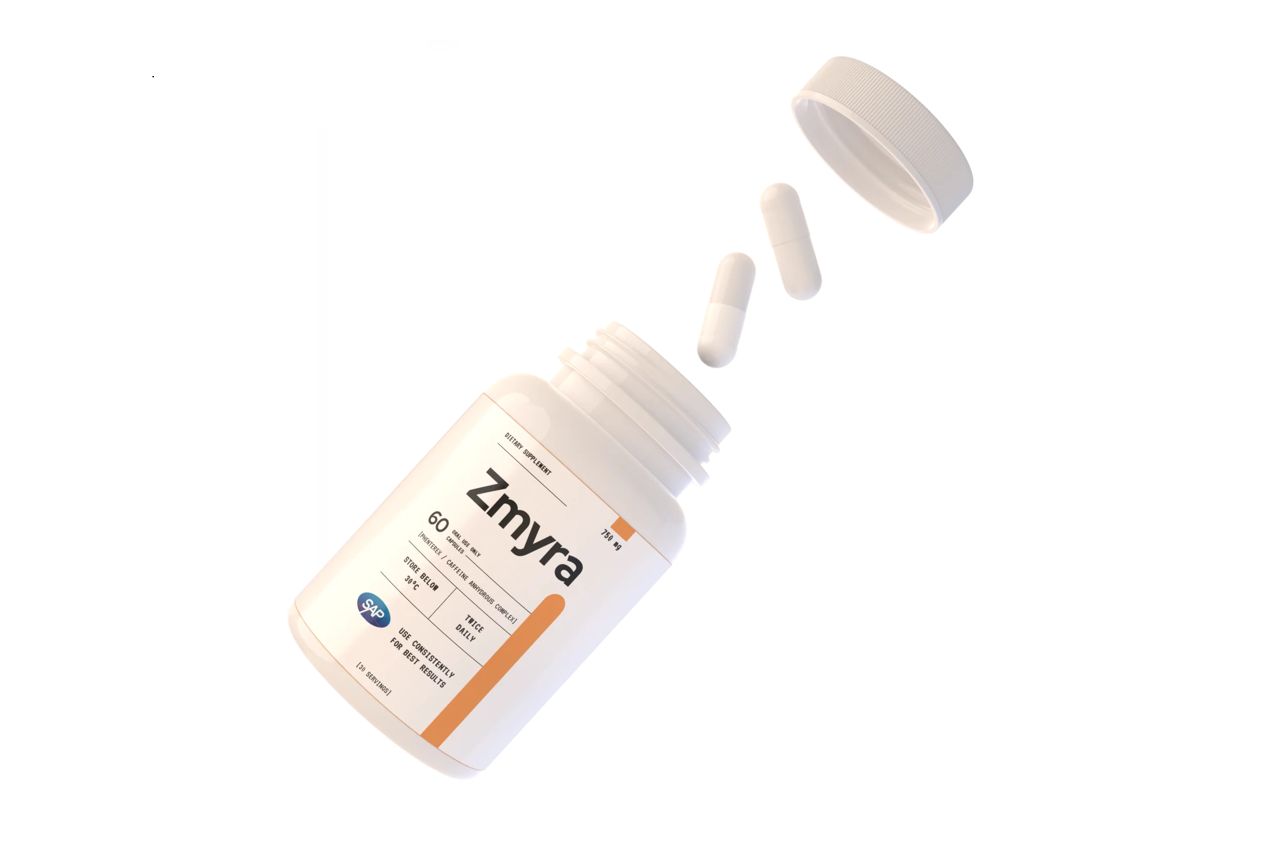
Phentermine, a prescription medication for weight loss, has been widely used to combat obesity. As a controlled substance, it can be challenging to obtain and may have potential side effects. Many individuals seeking effective weight management solutions are now exploring alternatives.
The best phentermine alternative combines Phentermine and topiramate, which has shown superior efficacy in clinical trials. This combination offers enhanced weight loss benefits while potentially reducing the side effects of Phentermine alone.
Natural supplements and lifestyle changes can also support weight loss efforts for those unable to access prescription medications. These alternatives may include dietary modifications, increased physical activity, and over-the-counter supplements that boost metabolism or reduce appetite.
Understanding Phentermine and Its Role in Weight Loss
Phentermine is a prescription medication used to aid weight loss in obese individuals. It acts as an appetite suppressant and stimulant to help patients reduce calorie intake and increase energy expenditure.
What Is Phentermine?
Phentermine is an FDA-approved medication for short-term use in treating obesity. It belongs to a class of drugs called anorectics or appetite suppressants. The drug is available under various brand names, including Adipex-P.
Phentermine is classified as a controlled substance due to its potential for abuse and dependence. It is typically prescribed for individuals with a body mass index (BMI) of 30 or greater or 27 if other weight-related health issues exist.
The medication is available in tablet or capsule form and is usually taken once daily before breakfast or 1-2 hours after breakfast. A healthcare provider determines the dosage and duration of use based on individual needs and response to treatment.
How Phentermine Aids in Weight Reduction
Phentermine works by stimulating the central nervous system, which increases the release of neurotransmitters like norepinephrine and dopamine—this action results in decreased appetite and increased feelings of fullness.
The medication helps patients adhere to a reduced-calorie diet by:
- Suppressing hunger pangs
- Reducing food cravings
- Increasing energy levels
Studies have shown that Phentermine can lead to significant weight loss when combined with lifestyle changes. Patients may lose 5-10% of their initial body weight over 12 weeks of treatment.
It's important to note that Phentermine is not a long-term solution for obesity. It should be used with a comprehensive weight loss program, including diet, exercise, and behavioral modifications.
Potential Risks and Side Effects of Phentermine
While effective for weight loss, Phentermine can cause various adverse reactions. Before starting treatment, users should be aware of both short-term side effects and potential long-term health implications.
Common Side Effects
Phentermine may cause dry mouth, insomnia, and constipation. Some users experience increased heart rate and blood pressure. Headaches and dizziness are also frequently reported.
Anxiety and irritability can occur due to Phentermine's stimulant properties. Nausea and changes in taste are less common but possible side effects.
Users may notice decreased appetite, which aids weight loss but can lead to nutrient deficiencies if not monitored. Patients with Type 2 diabetes should be cautious, as Phentermine can affect blood sugar levels.
Long-Term Health Considerations
Extended phentermine use may impact cardiovascular health. Possible class-effect increases in heart disease risk have been noted, particularly with prolonged usage.
Tolerance can develop over time, potentially reducing the drug's effectiveness for weight loss goals. This may lead some users to increase dosage, heightening the risk of side effects.
Psychological dependence is a concern, as some individuals may struggle to maintain weight loss without the medication. Abrupt discontinuation can result in withdrawal symptoms, including fatigue and depression.
Long-term users should undergo regular health check-ups to monitor for potential complications. Cardiovascular screenings are essential to ensure ongoing safety during treatment.
Zmyra: The Best Natural Alternative to Phentermine for Effective Weight Loss
Regarding weight loss supplements, Phentermine is often a go-to for those seeking significant results. However, Phentermine's side effects and the need for a prescription make it less appealing for long-term use. Zmyra emerges as the ideal natural alternative to Phentermine, offering similar weight loss benefits without the associated risks and limitations of prescription drugs.
Key Differences: Zmyra vs. Phentermine
| Criteria | Zmyra | Phentermine |
| Accessibility | Over-the-counter, no prescription required | Prescription-only medication |
| Appetite Suppression | Strong, using natural fibers like Glucomannan | Strong, but may cause restlessness and anxiety |
| Fat-Burning Properties | Natural thermogenic like Cayenne and Green Tea | Effective, but heavily stimulant-dependent |
| Side Effects | Minimal, natural ingredients | Common side effects include insomnia, nervousness, and increased heart rate. |
| Long-Term Use | Safe for extended use | Not recommended for prolonged use |
| Affordability | Affordable, no prescription costs | Higher due to medical visits and prescriptions |
Why Zmyra Outshines Phentermine
Over-the-Counter Convenience
One of Zmyra's significant advantages is its availability without a prescription. Unlike Phentermine, which requires medical supervision and is limited to short-term use, Zmyra can be easily purchased and used at your convenience, making it an accessible solution for anyone looking to lose weight naturally.
Natural Appetite Suppression Without Side Effects
Zmyra harnesses the power of Glucomannan, a natural fiber that expands in your stomach to make you feel full for longer, helping control cravings and calorie intake. Unlike Phentermine, which often causes jitteriness and other side effects, Zmyra's gentle, natural approach ensures that you can reduce your appetite without the discomfort of stimulants.
Fat-Burning Benefits with Natural Ingredients
Zmyra is packed with natural thermogenic ingredients like Cayenne Pepper Extract and Green Tea Extract, which boost metabolism and promote fat oxidation. These ingredients increase your body's calorie-burning ability without the harsh stimulants found in Phentermine, making Zmyra practical and much safer for long-term use.
Safe for Extended Use
While Phentermine is only intended for short-term use due to the risk of dependency and severe side effects, Zmyra's all-natural formula allows for safe, sustained use. This makes Zmyra an excellent option for individuals looking for a long-term weight loss solution.
No Risk of Dependency or Harsh Side Effects
Phentermine comes with the risk of addiction and a variety of side effects, including insomnia, elevated blood pressure, and heart palpitations. Zmyra, on the other hand, uses non-habit-forming ingredients like Chromium Picolinate, which helps manage cravings and regulate blood sugar levels, offering a safer approach to weight loss.
Zmyra: Get the benefits you've been looking for!
Pros and Cons: Zmyra vs. Phentermine
Zmyra Pros
- Natural Ingredients: Safe, plant-based formula with minimal risk of side effects.
- Appetite Control: Effectively reduces cravings and helps control calorie intake.
- Long-Term Solution: Suitable for ongoing use without the risks of addiction or dependency.
- No Prescription Required: Accessible and affordable, no need for medical approval.
Zmyra Cons
- Requires Consistency: Must be taken regularly for best results, alongside a healthy lifestyle.
- Phentermine Cons:
- Potential Side Effects: Can cause nervousness, insomnia, and cardiovascular issues.
- Requires Prescription: Limited accessibility and higher cost due to necessary doctor visits
- Not for Long-Term Use: Phentermine is designed for short-term use, with dependency risks.
Conclusion: Zmyra is the Superior Phentermine Alternative
If you're looking for a natural, effective, and sustainable alternative to Phentermine, Zmyra is the best option available. Its combination of safe, scientifically backed ingredients offers potent appetite suppression, metabolism-boosting, and fat-burning benefits without needing a prescription. Whether just starting your weight loss journey or seeking a long-term solution, Zmyra provides a natural, risk-free approach to achieving your goals.
Several options exist for those seeking alternatives to Phentermine for weight management. These include prescription medications and over-the-counter supplements that support weight loss through various mechanisms.
Buy Zmyra Before it's SOLD OUT >>>
Prescription Alternatives
Medically supervised alternatives to Phentermine provide effective weight management options. Liraglutide and semaglutide are injectable medications that mimic a hormone to reduce appetite and slow stomach emptying.
Orlistat works by blocking fat absorption in the intestines. Combining with a low-fat diet can lead to modest weight loss.
Naltrexone-bupropion is a combination pill that affects brain chemistry to decrease hunger and cravings. Over time, it may help patients lose 5-10% of their body weight.
Topiramate, initially an anti-seizure medication, has shown effectiveness for weight loss when used off-label. It can suppress appetite and increase feelings of fullness.
Over-the-Counter Phentermine Alternatives
Non-prescription options aim to support weight loss through natural ingredients. Green tea extract contains caffeine and catechins that may boost metabolism slightly.
Glucomannan, a dietary fiber, expands in the stomach to promote fullness. Studies show modest effects on weight when taken before meals.
Conjugated linoleic acid (CLA) is a fatty acid that may help reduce body fat in some people. Although results are mixed, it's generally considered safe.
Tracking physical activity and food intake can be as effective as some supplements for weight management. Apps and wearable devices make this more accessible than ever.
Chromium picolinate may help regulate blood sugar and reduce cravings, though more research is needed on its long-term effectiveness for weight loss.
Natural Phentermine Alternatives and Their Benefits

Several natural ingredients offer potential weight loss benefits without the side effects associated with Phentermine. These alternatives work through various mechanisms to support metabolism and appetite control.
Herbal Ingredients and Their Effects
Garcinia cambogia contains hydroxycitric acid, which may inhibit fat production and reduce appetite. Green tea extract is rich in catechins that can boost metabolism and fat oxidation.
Bitter orange (Citrus aurantium) contains synephrine, which may increase energy expenditure. However, its effects are milder than Phentermine.
Some studies have shown promise in reducing body fat. Conjugated linoleic acid (CLA) may work by altering fat metabolism.
Forskolin, derived from the Coleus forskohlii plant, may help break down stored fats and increase lean body mass.
The Role of Diet in Supporting Natural Alternatives
A balanced diet rich in protein and fiber can enhance the effects of natural phentermine alternatives. Protein increases satiety and preserves muscle mass during weight loss.
High-fiber foods like vegetables, fruits, and whole grains slow digestion and promote fullness. They also support gut health, which may influence weight management.
Reducing processed foods and added sugars helps stabilize blood sugar levels and reduce cravings. This complements the appetite-suppressing effects of natural alternatives.
Adequate hydration is crucial, as thirst can sometimes be mistaken for hunger. Drinking water before meals may also reduce calorie intake.
Key Ingredients in Effective Weight Loss Supplements
Effective weight loss supplements often contain ingredients that target appetite control and boost metabolism. When combined with proper diet and exercise, these components work synergistically to support weight management efforts.
Understanding Appetite Suppressants
Appetite suppressants play a crucial role in weight loss by helping reduce calorie intake. Natural ingredients like Glucomannan, a soluble fiber, expand in the stomach to promote feelings of fullness. Green tea extract contains compounds that may help curb hunger.
Caffeine, found in many supplements, can temporarily reduce appetite while boosting energy. Some formulations include 5-HTP, which may increase serotonin levels and potentially decrease food cravings.
Chromium is another common ingredient believed to help regulate blood sugar and reduce appetite. However, researchers remain divided about its effectiveness for weight loss.
Metabolism Boosters for Fat Loss
Metabolism-boosting ingredients aim to increase the body's calorie-burning capacity. Green tea extract contains catechins and caffeine, which may enhance thermogenesis and fat oxidation.
Capsaicin, derived from chili peppers, has shown the potential to increase metabolic rate and promote fat burning. Some supplements include L-carnitine, an amino acid that helps transport fatty acids into cells for energy production.
Conjugated linoleic acid (CLA) is often included because it reduces body fat and increases lean muscle mass. B-complex vitamins are frequently added to support energy metabolism and overall cellular function.
Natural caffeine sources like guarana or yerba mate are popular additions for their stimulant effects and potential to boost metabolic rate.
An In-Depth Look at Popular Phentermine Alternative Brands
Several brands have emerged as popular alternatives to Phentermine for weight management. These products aim to provide similar benefits without the need for a prescription.
Assessing PhenQ and Its Components
PhenQ is a well-known phentermine alternative that combines multiple weight loss strategies. Its formula includes α-Lacys Reset®, a proprietary alpha-lipoic acid and cysteine blend that may boost metabolism and increase fat burning.
PhenQ also contains capsimax powder derived from capsicum, which can enhance thermogenesis. Caffeine is included to boost energy levels and focus. Chromium picolinate helps reduce sugar cravings, while nopal cactus provides fiber for better appetite control.
Customer ratings for PhenQ are generally positive. Many users report increased energy and reduced appetite; some have experienced significant weight loss combined with diet and exercise.
PhenGold and Phen24: Comparative Analysis
PhenGold is another popular alternative that focuses on boosting metabolism and suppressing appetite. Its formula includes green tea extract, L-tyrosine, and rhodiola rosea. These ingredients may help increase fat oxidation and improve mental focus.
Phen24 takes a unique approach with separate daytime and nighttime formulas. The daytime formula contains caffeine and guarana to boost energy, while the nighttime formula includes Glucomannan and chromium to support metabolism during sleep.
Both products have received favorable customer ratings. Users often praise PhenGold for its energy-boosting effects. Phen24 customers appreciate the 24-hour approach to weight management.
When comparing the two, PhenGold may be better suited for those seeking daytime energy boosts. Phen24 could be preferable for individuals looking for round-the-clock support.
Evaluating the Efficacy of Weight Loss Supplements
Two key factors stand out when assessing weight loss supplements: clinical studies and customer experiences. These provide valuable insights into a product's effectiveness and real-world results.
Analyzing Results from Clinical Studies
Clinical trials offer scientific evidence for supplement efficacy. Researchers compare weight loss outcomes between supplement and placebo groups. They measure total weight loss, body fat percentage changes, and metabolic improvements.
Well-designed studies use large sample sizes and account for variables like diet and exercise. Double-blind, placebo-controlled trials are considered the gold standard. These minimize bias and provide the most reliable data.
Results often show modest weight loss for effective supplements. A 5-10% reduction in body weight over 3-6 months is typically considered clinically significant. Side effects and long-term safety are also crucial considerations in these studies.
The Significance of Customer Feedback and Ratings
Customer reviews complement clinical data by providing real-world insights. Users share their experiences with weight loss, side effects, and ease of use. This feedback helps others gauge a supplement's potential effectiveness.
High ratings and positive reviews can indicate customer satisfaction. However, it's essential to look for detailed, verified reviews. These often provide more credible information than brief, anonymous comments.
Patterns in feedback can reveal everyday experiences. For example, many users reporting increased energy or reduced appetite may support a supplement's claims. Negative reviews can highlight potential issues or limitations of a product.
Customer experiences should be considered alongside clinical evidence for a comprehensive evaluation of weight loss supplements.
Strategies for Managing Food Cravings and Emotional Eating

Addressing food cravings and emotional eating is crucial for successful weight management. Effective strategies combine behavioral approaches with targeted supplements to reduce appetite and enhance control over eating habits.
Behavioral Approaches to Appetite Control
Stress management techniques play a crucial role in controlling emotional eating. Implementing proper sleep hygiene can also help regulate appetite hormones and reduce cravings.
Mindful eating practices encourage individuals to focus on hunger cues and eat slowly, promoting better portion control. Keeping a food diary can help identify triggers for emotional eating and cravings.
Regular physical activity burns calories, helps regulate mood, and reduces stress-induced eating. Meal planning and preparation can also minimize impulsive food choices driven by cravings.
Cognitive behavioral therapy (CBT) techniques can be effective in addressing the psychological aspects of food cravings and emotional eating patterns.
Supplements That Aid in Reducing Food Cravings
Several supplements have shown promise in helping manage food cravings. 5-HTP, a precursor to serotonin, may help reduce appetite and cravings, particularly for carbohydrates.
L-Theanine, an amino acid found in tea, can promote relaxation and potentially reduce stress-related eating. It may help individuals feel more satisfied with smaller portions.
Fiber supplements can increase feelings of fullness, reducing overall food intake. Chromium picolinate has been studied for its potential to regulate blood sugar levels and reduce cravings.
Protein supplements, when consumed between meals, can help stabilize blood sugar and reduce hunger pangs. Always consult a healthcare professional before starting any new supplement regimen.
Supporting Your Weight Loss Journey: Programs and Resources
Effective weight loss often requires a comprehensive approach. Various programs and resources can provide crucial support, from financial assistance for medications to digital tools that help track progress and foster community.
Patient Assistance Programs for Weight-Loss Medications
Patient assistance programs offered by pharmaceutical companies and non-profit organizations can significantly reduce the financial burden of weight-loss medications. These programs help eligible patients access medicines at reduced costs or for free.
Eligibility criteria often include income level, insurance status, and medical necessity. Patients can inquire about these programs through their healthcare providers or contact medication manufacturers directly.
Some programs may also provide additional resources such as counseling services or nutritional guidance to support a patient's weight loss journey.
Digital Tools and Communities for Weight Loss Goals
Digital tools and online communities are vital in modern weight loss strategies. Mobile apps allow users to track calorie intake, monitor physical activity, and log weight changes.
Many platforms offer personalized meal plans and exercise routines tailored to individual goals. Online forums and social media groups allow individuals to share experiences, offer support, and exchange tips.
Virtual coaching services connect users with certified nutritionists and fitness experts for personalized guidance. These digital resources often integrate with wearable devices, offering comprehensive data analysis to help users make informed decisions about their health and weight loss progress.
Safety and Regulations of OTC Weight Loss Products
Over-the-counter (OTC) weight loss products are widely available but have varying levels of regulation and safety. The FDA plays a crucial role in overseeing these products, while consumers must exercise caution when navigating the market.
Understanding the FDA's Role
The Food and Drug Administration (FDA) regulates OTC weight loss products differently than prescription medications. OTC diet pills are classified as dietary supplements with less stringent approval processes. The FDA does not evaluate these products for safety or efficacy before they hit the shelves.
However, the FDA can take action if a product is unsafe or contains undeclared ingredients. They monitor adverse event reports and can issue warnings or recalls when necessary. Manufacturers are responsible for ensuring their products are safe and properly labeled.
The FDA has approved some OTC weight loss medications, such as Orlistat, which underwent rigorous testing before becoming available without a prescription.
Navigating the Market Responsibly
Consumers should approach OTC weight loss products with caution. Before use, it's essential to research ingredients and potential side effects. Herbal alternatives to prescription medications may seem appealing, but they can still pose risks.
When considering OTC options for weight loss:
- Consult a healthcare provider before starting any new regimen
- Read labels carefully and follow dosage instructions
- Be wary of products making unrealistic claims
- Check for FDA warnings or recalls
Some OTC weight loss products may interact with other medications or exacerbate existing health conditions. Individuals with obesity should work with healthcare professionals to develop comprehensive treatment plans that may include lifestyle changes, diet strategies, and possibly FDA-approved medications when appropriate.

Frequently Asked Questions About Phentermine Alternatives
Phentermine alternatives encompass over-the-counter products, natural supplements, prescription medications, and legally accessible substances. These options aim to provide similar benefits for weight loss and appetite suppression while addressing energy needs.
Q: What Are the Top Over-the-counter Products Similar to Phentermine?
A: Several over-the-counter products aim to mimic Phentermine's effects. PhenQ is a popular choice, combining multiple ingredients to boost metabolism and reduce appetite.
Phen24 offers a dual approach with separate day and night formulas. It targets weight loss around the clock while supporting better sleep patterns.
Q: Which Natural Supplements Are Considered Adequate for Weight Loss Like Phentermine?
A: Green tea extract is widely recognized for its potential to enhance fat burning and boost metabolism. It contains catechins and caffeine, which may aid in weight loss.
Garcinia cambogia, derived from a tropical fruit, has gained attention for its purported ability to block fat production and suppress appetite.
Q: What Prescription Medications Offer Similar Benefits to Phentermine Without Being Phentermine?
A: Liraglutide 3.0 mg is an injectable medication that can be an effective alternative to Phentermine. It mimics a hormone that regulates appetite and food intake.
Orlistat, available by prescription, works differently by blocking fat absorption in the intestines.
Q: Are There Any Legally Accessible Substances That Work for Appetite Suppression?
A: Glucomannan, a dietary fiber derived from the konjac root, is legally available and may help suppress appetite by promoting a feeling of fullness.
Chromium picolinate is another legally accessible supplement that may help reduce food cravings and regulate blood sugar levels.
What Are the Critical Differences Between Phentermine Alternatives and Phentermine Itself?
Phentermine is a controlled substance, while many alternatives are not. This means Phentermine requires a prescription and is subject to stricter regulations.
Alternatives often have milder side effects compared to Phentermine. They may work through different mechanisms, such as boosting metabolism or blocking fat absorption, rather than directly suppressing appetite.
Q: Can You Recommend Non-prescription Alternatives That Are Comparable to Phentermine?
A: Caffeine is a widely used stimulant that can boost energy, just like Phentermine. It's found in coffee, tea, and many energy drinks.
B-complex vitamins, particularly B12, are essential for energy production in the body. Supplements containing these vitamins may help combat fatigue and increase energy levels.
Conclusion: Making an Informed Decision
Choosing the best phentermine alternative requires careful consideration of various factors. Individuals should consult healthcare professionals to evaluate their needs and health conditions.
Natural alternatives and weight loss supplements may offer viable options for those seeking non-prescription solutions. These alternatives often provide additional health benefits beyond weight loss.
It's crucial to research the efficacy and safety profiles of different options. Clinical studies can provide valuable insights into the effectiveness of various treatments.
Lifestyle modifications, including diet and exercise, should complement any chosen alternative. These changes can enhance the overall results and promote long-term success.
Patients should be aware of potential side effects and interactions with other medications. Regular monitoring and follow-ups with healthcare providers are essential for optimal outcomes.
Ultimately, the best phentermine alternative will vary from person to person. Factors such as individual health goals, medical history, and personal preferences all play a role in determining the most suitable option.
By weighing the pros and cons of each alternative and seeking professional guidance, individuals can make informed decisions about their weight loss journey and overall health.
